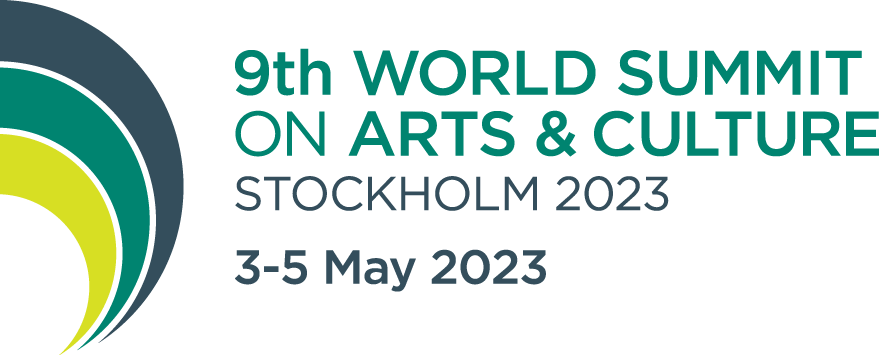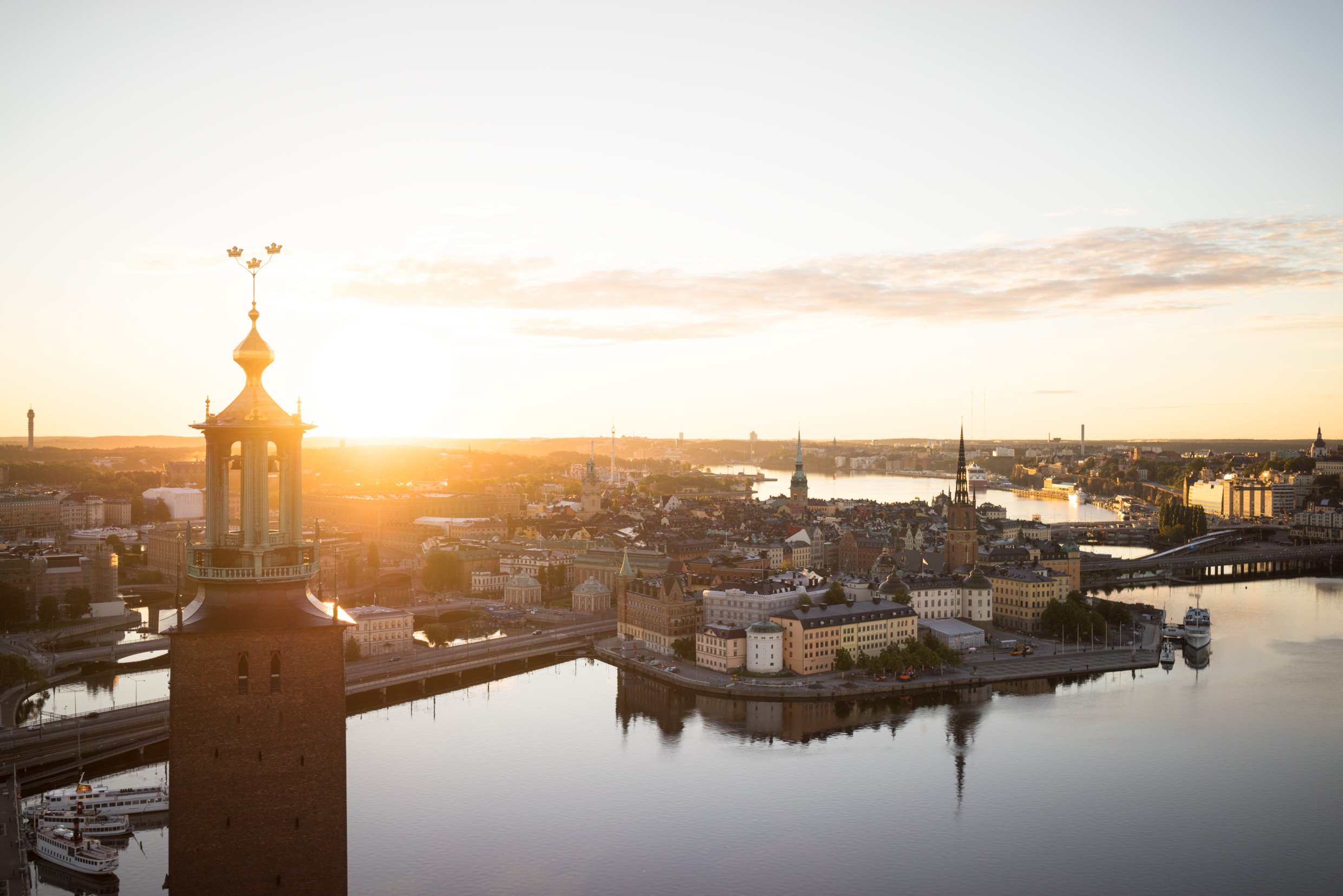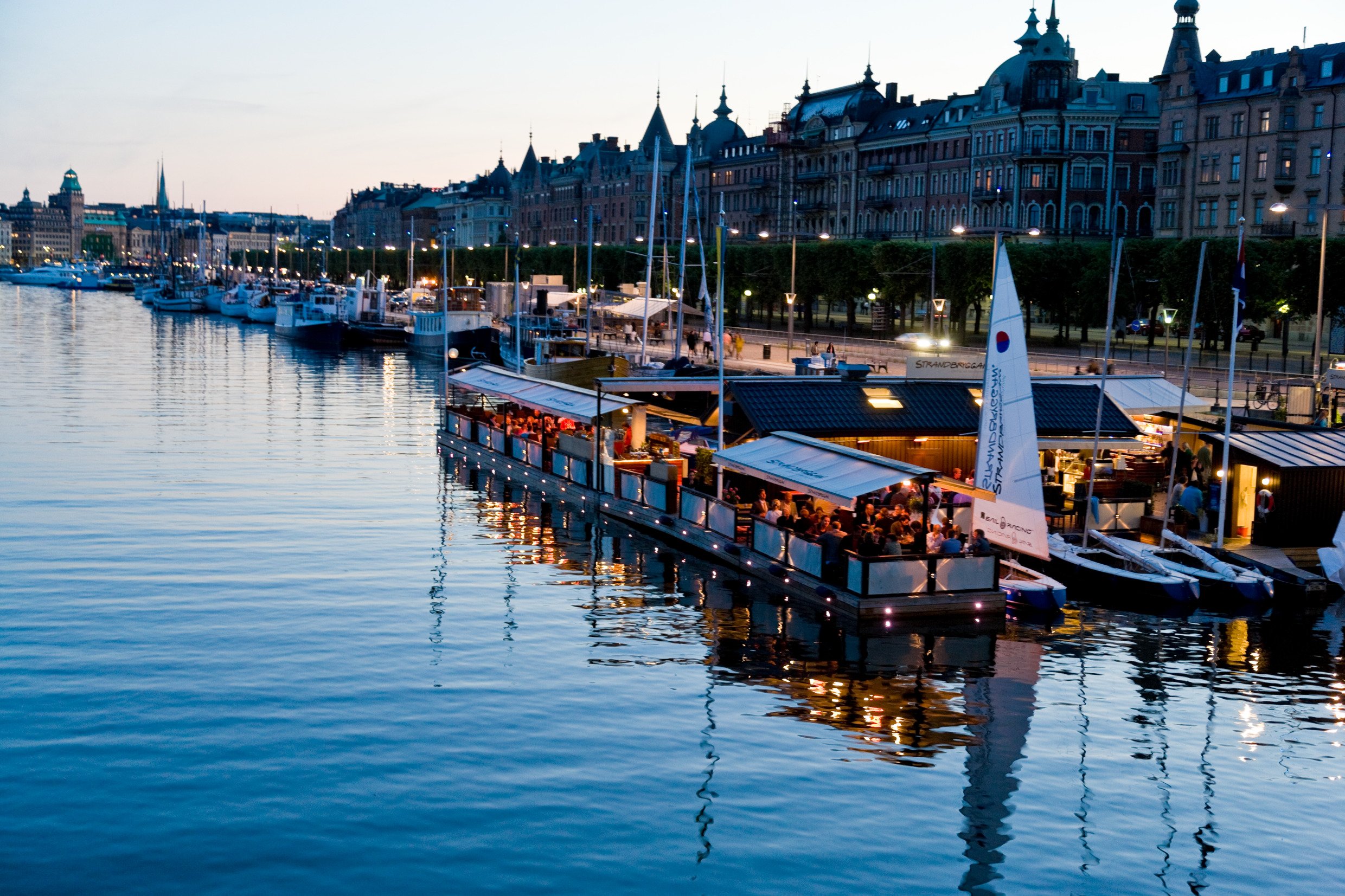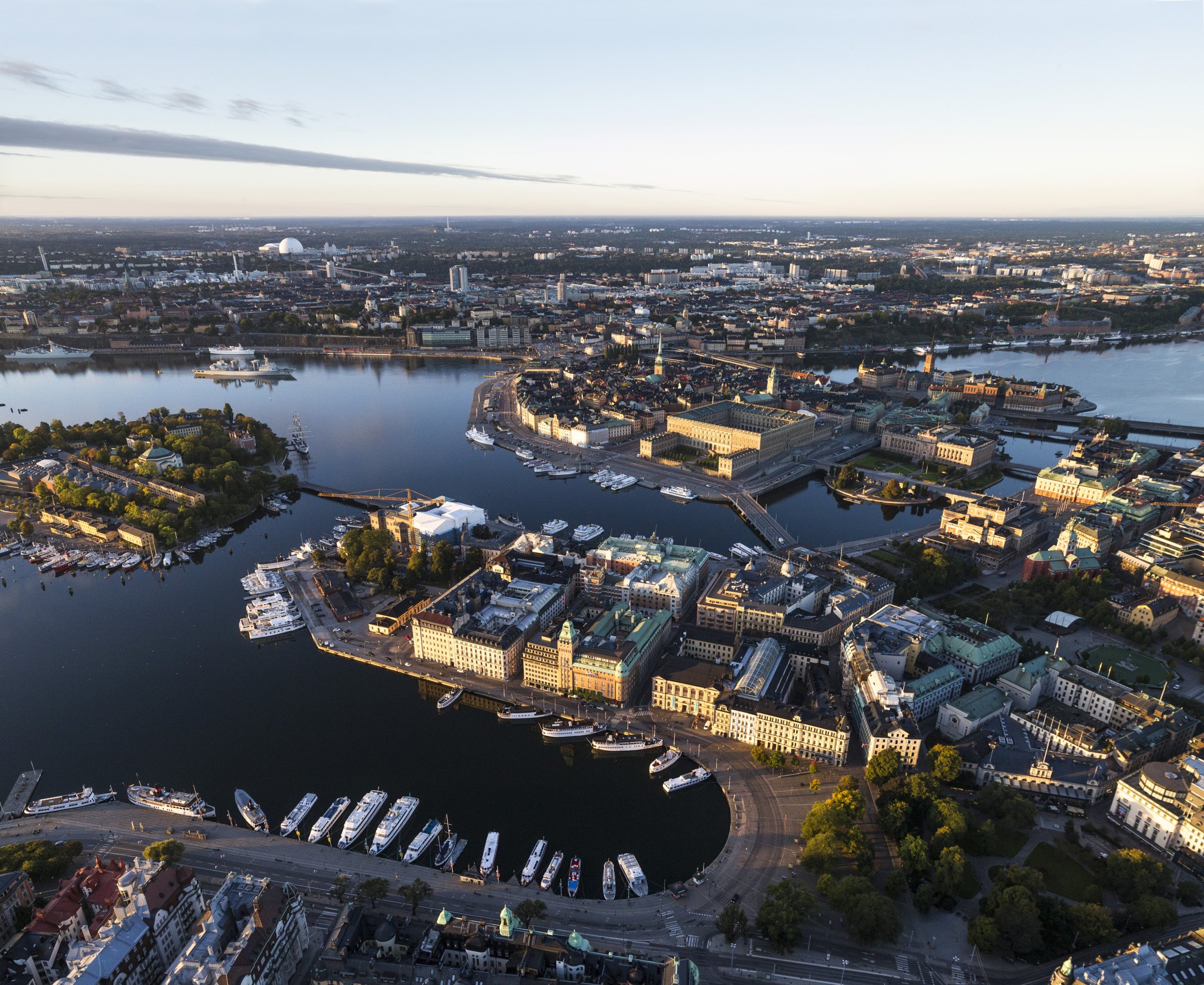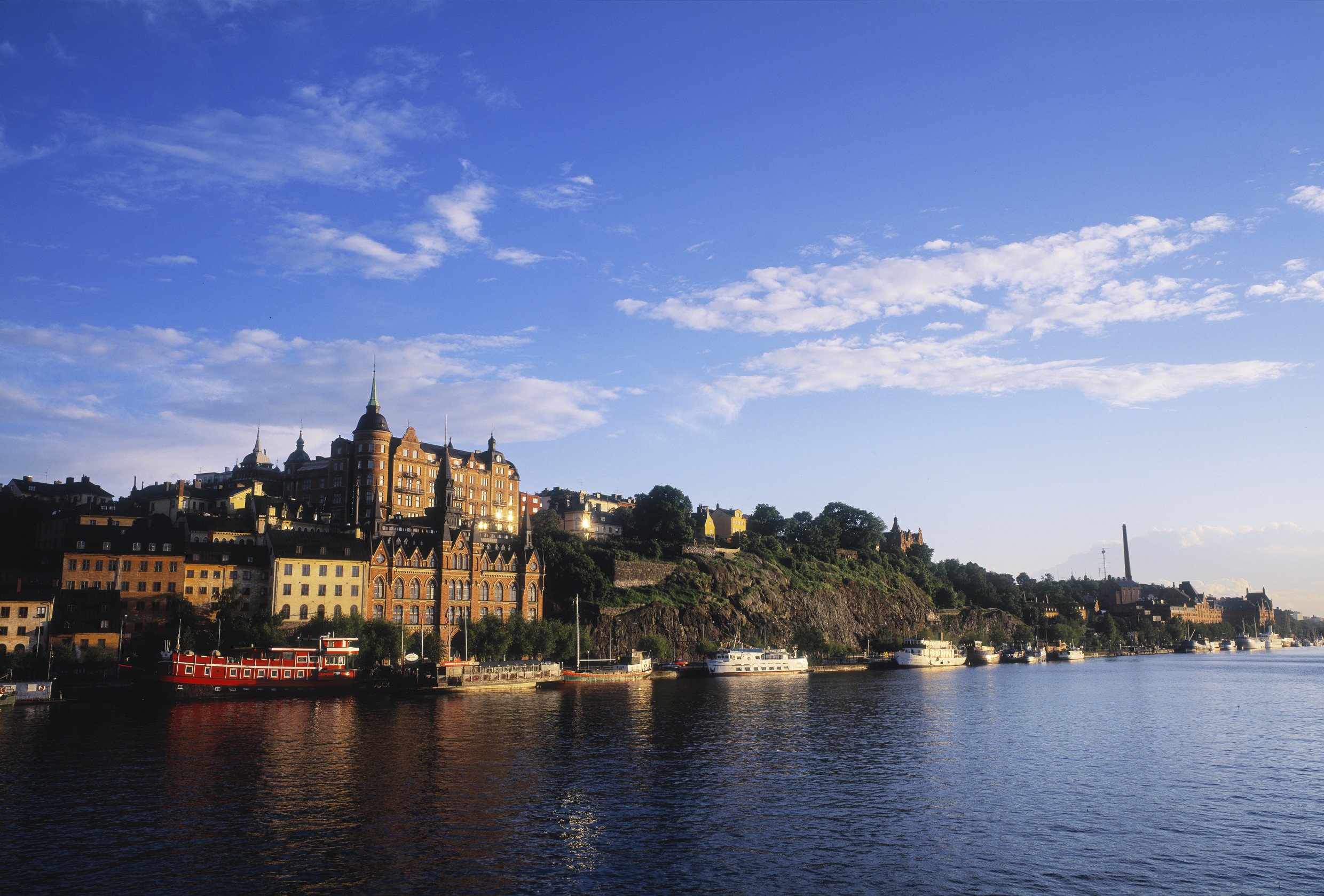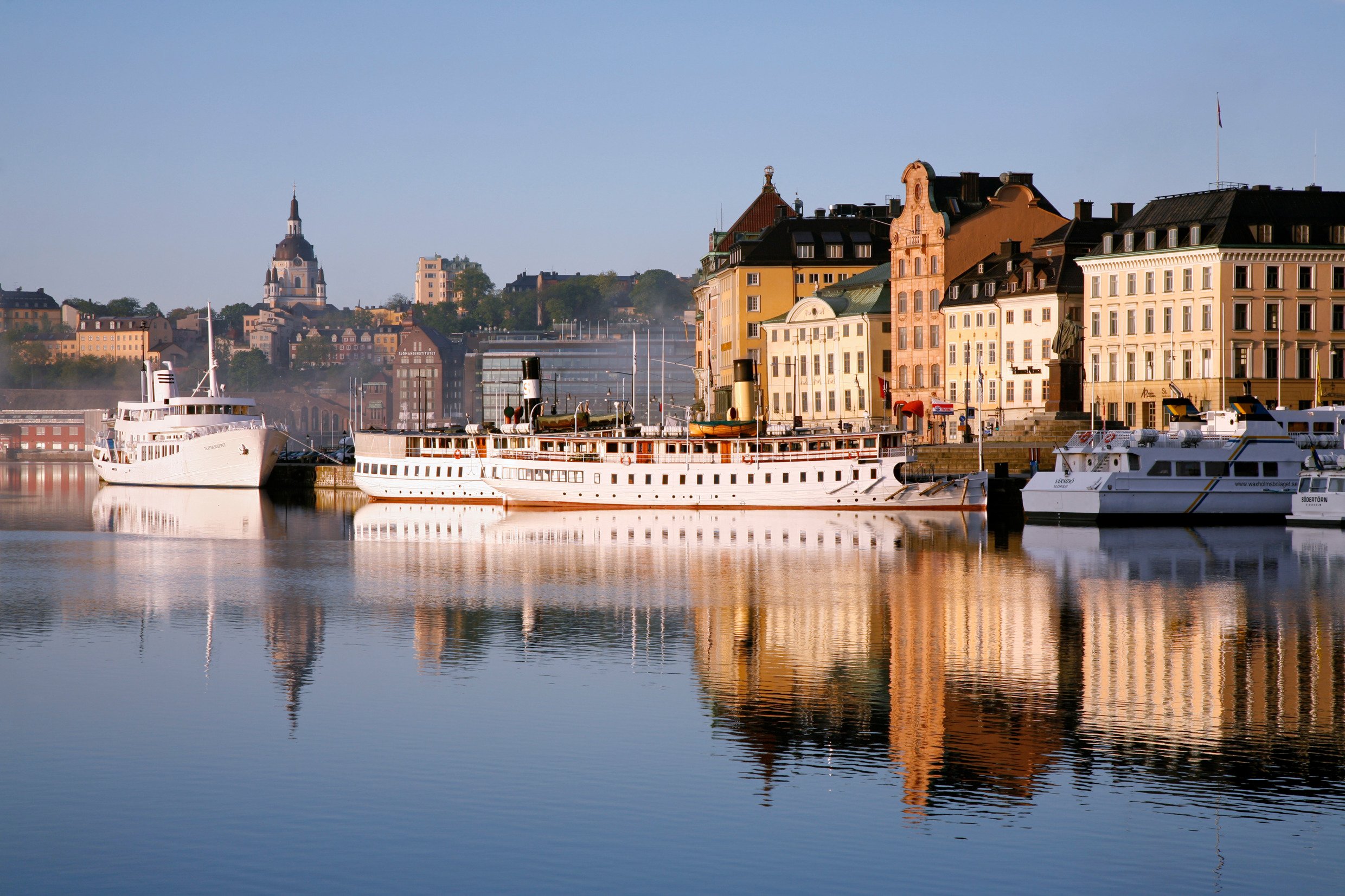About Stockholm and Sweden
Sweden & Stockholm
Stockholm is the capital and largest city of Sweden, built on 14 islands connected by 57 bridges. With few high-rise buildings, Stockholm has a unique landscape, with church spires that pierce an otherwise almost unobstructed skyline. Over 30 percent of the city area is made up of waterways and another 30 percent is parks and green spaces.
Sweden is a parliamentary democracy, which means that all public power proceeds from the people. At the national level, the people are represented by the Riksdag (Swedish Parliament) which has legislative power. The Government implements the Riksdag's decisions and draws up proposals for new laws or law amendments.
A Swedish fundamental law, the Freedom of the Press Act, contains provisions on the right to access official documents to guarantee an open society with access to information about the work of the Riksdag, the Government and public agencies. This openness entitles the Swedish people to study official documents.
The Swedish National Day is celebrated on the 6th of June, while the Sámi National Day is celebrated on the 6th of February, to commemorate the first Sámi congress that took place in Trondheim, Norway in 1917.
To learn more about Sweden and Stockholm, please visit:
www.visitstockholm.com and www.visitsweden.com
Languages
The official language in Sweden is Swedish, however English is widely used. In 1999 Sweden formally declared five official minority languages: Finnish, Meänkieli (Tornedal Finnish), Romani, Sámi and Yiddish. The Sámi are the Indigenous people of Sweden, having lived in their settled areas long before the current national borders were drawn. In 1977, the Swedish Riksdag recognised the Sámi as an Indigenous people in Sweden. Since 2011 the Sami have been recognised in the Swedish constitution.
Population
Sweden is a country that has a rising population, recently passing 10 million people. Greater Stockholm will soon reach a population of 1.9 million.
Food
Generally, the level of food hygiene throughout the country is high. Many cafés offer free drinking water for all. There are a wide range of restaurants offering catering to different needs. Traditional Swedish Fika is very common and refers to having a cup of coffee and a biscuit or sweet treat.
Religious information
Religion in Sweden has, over the years, become increasingly diverse. Christianity was the religion of virtually all of the Swedish population from the 12th to early 20th century, but it has rapidly declined throughout the late 20th and early 21st century.
Climate and Weather
Winter and summer temperature differences in Sweden are extreme, but generally the country enjoys a temperate climate, thanks to the Gulf Stream. Temperatures in May regularly hit 12–16°C. More information can be found at the site www.timeanddate.com or at www.smhi.se.
Currency
Sweden is one of the EU countries that opted to keep its currency and not use the Euro. The currency in Sweden is called the Swedish crown, or the krona (SEK). Sweden is heading towards being a cashless society where instant mobile payments and other new technologies have gained prominence. Please note that cash is rarely used, signs stating ‘This is cash free shop/restaurant’ will be visible to indicated preferred payment methods. Credit cards are used for most payments including vending machines, convenience stores, train tickets, restaurants and taxis.
Time
Central European Summer Time (CEST) will be effective during the Summit (starting 26 March 2023). During Daylight Saving Time, the time in Sweden is GMT/UTC + 2h.
Electricity
In Sweden the power plugs and sockets are of type F. Type C and type E can also be used thanks to their compatibility with type F sockets. The standard voltage is 230V and the standard frequency is 50Hz.
Telecommunications
You can buy prepaid SIM cards in Sweden in major convenience stores like 7-eleven, Pressbyrån, or in grocery stores like COOP, ICA or Hemköp. The telephone and internet connection in Sweden is very good. Free Wi-Fi is offered at Stockholm Arlanda Airport, Stockholm Central Station and the City Terminal. It is also common for cafés, restaurants, and libraries to offer free Wi-Fi.
Water
Tap water in Sweden is of high quality and is perfectly safe to drink, so there is no need to buy bottled water. Swedes usually refill their reusable water bottle, however, if you purchase bottled water the bottles are usually recyclable.
Smoking
Smoking is prohibited in public spaces including bars, restaurants, clubs, ferries, buses, and other public areas such as playgrounds, railway stations, and in outdoor sections of restaurants and bars. You can be fined if you stub out your cigarette on the street.
Driving
Driving in Sweden is on the right-hand side.
Tipping
Tipping in Sweden is not as established as in many other countries. Hospitality staff welcome tips of 10 percent at restaurants and taxis, but it is not expected.
Bathrooms
It can be good to know that public bathrooms in Sweden and at Summit venues are sometimes gender neutral and, in these cases, are signed as unisex and open for use by both men and women. Some public bathrooms at the Waterfront Congress Centre are separated as male and female.
Useful Local Information
Modernity meets tranquility. Trend-setting restaurants close to an idyllic archipelago. Welcome to a city where it is easy to breathe – and to feel your pulse. Stockholm is the capital and largest city of Sweden, built on 14 islands connected by 57 bridges. With few high-rise buildings, Stockholm has a unique landscape. It’s mostly church spires that pierce the otherwise almost unobstructed skyline. Over 30 per cent of the city area is made up of waterways and another 30 per cent is parks and green spaces.
To learn more about Stockholm and Sweden visit Visit Sweden.
Credit: Bjorn Olin/Image Bank Sweden, Henrik Trygg /Image Bank Sweden, Henrik Trygg/Stockholm Media Bank, Henrik Trygg/Stockholm Media Bank and Ola Ericson/Image Bank Sweden.
